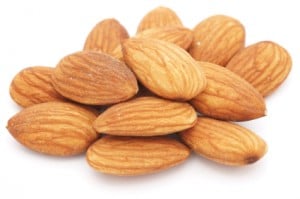Is your memory slipping? Does your brain work more slowly? Some of that is to be expected because our brains typically lose about 2% of their processing speed every decade after age 20. So by age 70 the brain is processing information 10% slower than it did at age 20. This drop off is actually minimal compared to the decline we see in function with other organ systems. We talk about heart health. But, what about mind health? Is there such a thing?
 Mind Health
Mind Health
There are several steps you can take to minimize the decline in brain function. First, some good news. Some brain function improves – yes improves with aging. Our crystallized intelligence improves. Crystallized intelligence is the ability to use our ever-expanding set of skills, knowledge and experiences and that ability doesn’t peak until our 70s.
We might think of this intelligence as “wisdom”. By using or skills, knowledge, and experiences effectively we can take shortcuts towards problem-solving.
Medicine is a great example of crystallized intelligence in action. Older physicians have more skills, knowledge, and experience than younger physicians and can make a diagnosis (sometimes without even examining a patient) much more quickly than younger physicians as a result of their crystallized intelligence. They can look at patient in some cases and tell you immediately what is wrong by synthesizing much information in short time due to their experience, skill, and knowledge.
Nutrition for Mind Health
Nutrition is the cornerstone of health and that is just as true for our brains and minds. A study published this year showed a 53% reduction in Alzheimer’s disease using the MIND diet. The MIND diet is a hybrid of the Mediterranean diet and the DASH diet used to manage hypertension. The MIND diet emphasizes consumption of berries and green leafy vegetables with limited intake of saturated foods.
The MIND diet emphasizes these foods:
- berries
- beans
- fish
- green leafy vegetables
- nuts
- olive oils
- other vegetables
- poultry
- whole grains
 wines
wines
Mind Diet Limits These Foods
- butter and margarine
- cheese
- fried and fast food
- pastries and sweets
- red meat
Tricks and Tips to Boost Memory
Beyond the food choices you make you can take advantage of the following tips to improve your memory.
Classical music: Classical music enhances activity of genes responsible for memory.
Laughter: Laughter reduces stress and anything that reduces stress improves memory.
Deep breathing: Deep breathing reduces stress and the meditation involved stimulates the hippocampus of the brain where memories are stored.
Learn new skills: Learning a new skill like a language, or craft, or activity like dancing stimulates new neural connections in the brain.
Exercise: Low fitness levels in middle age are associated with low brain volumes in the later years. So exercise more.
Watch less television: The risk of Alzheimer’s disease goes up 1.3 times for every hour of added television watched from age 40 to 59.
Get good quality sleep: Good sleep in middle age is associated with better cognitive function in later years.
Medical Conditions That Affect Memory
Almost any medical condition, acute or chronic, can adversely affect memory in part because of the stress of the illness, but many chronic conditions have an inflammatory component and inflammation is bad for cognitive function. The more common more conditions that affect memory include:
- Depression
- Hypothyroidism (low thyroid)
- Other hormonal deficiencies especially sex hormones
- Sleep apnea
So you if you have any of the above conditions you want to make sure that they are being treated optimally.
Okay, let’s test your memory. Do remember what crystallized intelligence means? Did you pass the test, or is your memory slipping?
Source: Health, September 2015
